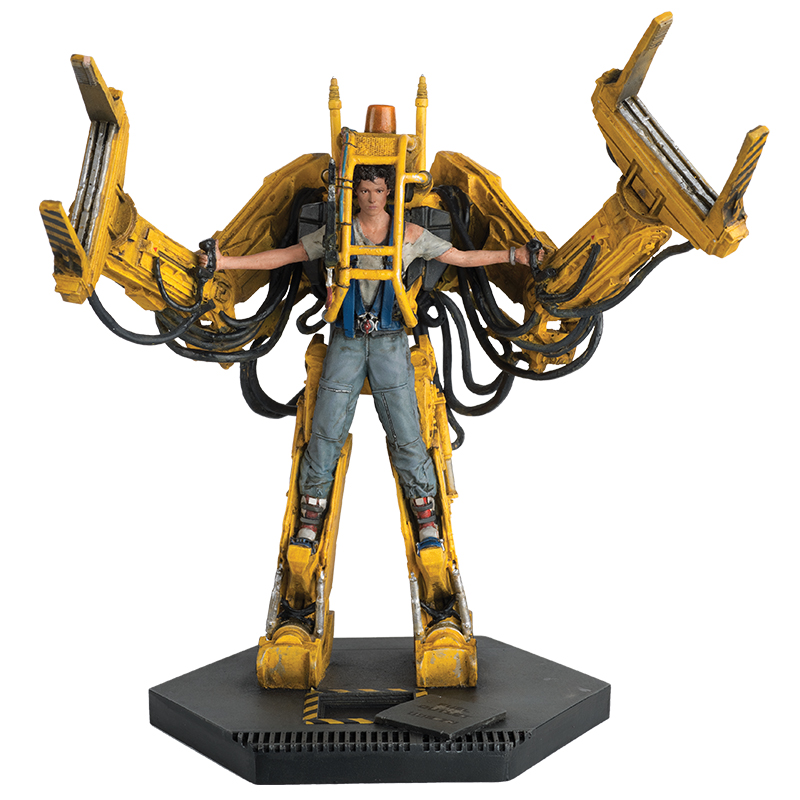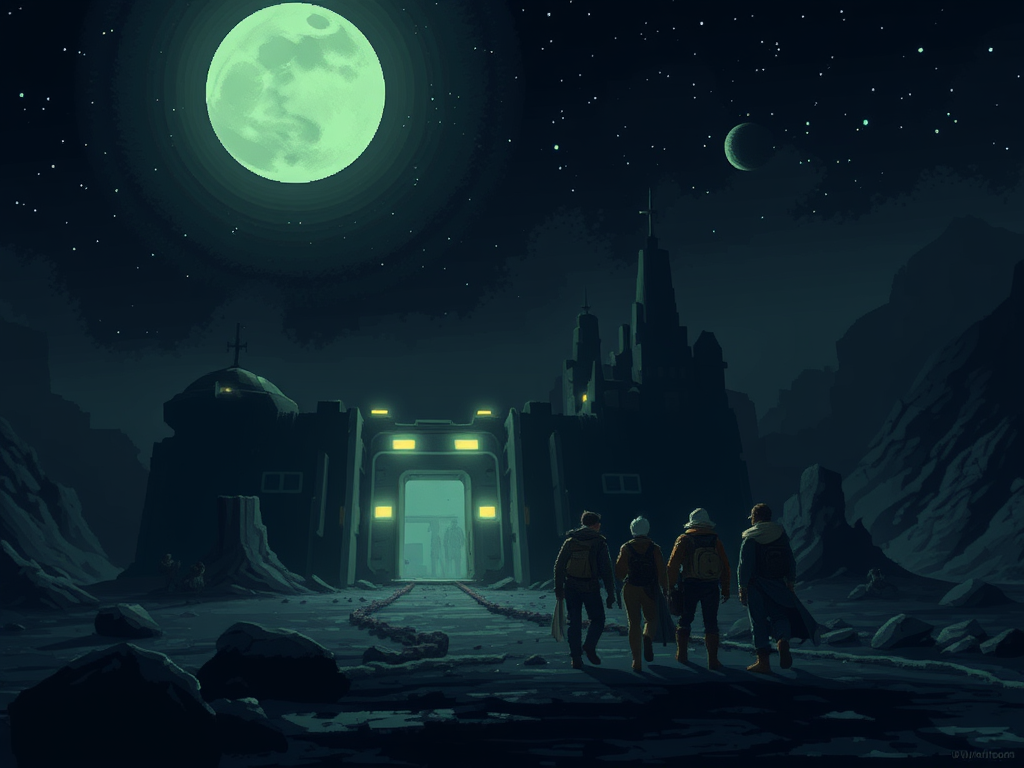Before you comment about how much you hate AI – that’s cool, this post isn’t for you. We know many in the RPG community, maybe even a majority, do not like, will not use and will not support any use of AI in their game. And that’s fine. We all have our opinions on what is appropriate use or not. If you’re interested in our feelings on the matter, and our thoughts on how to use it positively, please read on. We’re not going to tell you you’re wrong, and we appreciate your respect of our opinion.
Some things up front – we don’t believe in using AI to replace members of the RPG community. If you are selling a product, we do not believe you should use AI-generated art. We do not believe you should include AI-generated text, unless it’s called out as such or heavily edited. We don’t believe that is what AI is for. We don’t believe, at least at this time, that whole-cloth generated AI-products would even be of high quality, and the ability to copyright is dubious at best. We don’t believe in using an AI chatbot as a GM. There are a number of reasons it will not work right now, and we believe it will take some more technological leaps before being viable anyway. These are, in our opinion, “wrong ways” to use AI. The state of AI technology in October 2025 cannot meaningfully fulfill these use cases. There are a number of good debates around AI as a whole, its role in our society, its effects on the environment. These are worthy debates to be had. No technology is without some negative impact, the question is whether the impact is worth the utility, and if not, can the impact be mitigated so that the utility wins out. In our opinion, AI has transformative potential that is worth the impact, especially as we find ways to mitigate the impact.
Are you still here? Great! Let’s talk about how we use AI in our GM prep work to make things easier while helping bring your vision – not the AI’s vision – to the table. We will cover some beginner’s mistakes, and how to get better results.
Have you ever had a personal assistant? We haven’t. We’d wager that most GM’s haven’t! We’re a pretty self-sufficient lot, with our libraries of books, PDFs and most of all – pachyderm-like memories. We read, collect resources, learn from our mistakes and successes. We become inspired and fight burnout. And often – the curse of the GM – we do it alone and behind the scenes. Our players never see what we scrap. We have probably forgotten more material than we’ll ever remember to use. Information retrieval is the impossible dream and holy grail of RPG resource management. We think we’re close to being able to crack that nut with AI – but that’s a separate topic. First, let’s focus a little smaller.
AI tools, instead of being a co-GM or a content creator, can be used in more of a personal assistant role. You can use AI to help you work through your own ideas. In fact, we’d argue that AI tools work better this way. That’s right – you shouldn’t be using AI to come up with new ideas for you – you should be using it to help YOU come up with new ideas, and then fill in the research gaps for you.
Let’s step back and talk about why using an AI model for creative output is a bad idea. Many people understand that AI models, at least the LLM kind like ChatGPT, Gemini, etc., are fancy prediction machines. They take some inputs and predict the best output. And this is true, though very reductive. It’s like saying nuclear power is just using spicy rocks to boil water. It’s true, but there’s a lot more to it than that! But because they are trying to predict the best output, they are not random generators. Do not ask AI models for random outputs – you will end up with the same half-dozen or so answers every time – because those answers are the “most likely” answers to your question. There is some randomness so that there is some variation – when you’re asking for something factual, we call that a hallucination. When you’re asking for creativity, we call it randomness. But it’s very limited by design, because the technology is trying very hard to eliminate hallucinations. The flip side is that when you ask for creativity, you’re not really going to get it.
Don’t ask for random answers – ask for random tables
These AI tools are really good, however, at information retrieval and synthesis. If you’re running your game and you can’t find a good random table quickly, you can ask an AI to quickly generate a random table for your given situation. If you’re specific about your scene, setting and system, it will generate a pretty darn good bespoke random table – for any die size or combination you like. So, for example – don’t ask “Give me a random creature in a crypt.” – instead, ask “I am running a 3rd level D&D adventure set in a crypt. Give me a 1d10 random encounter table.” You’ll get something much better, tailored to your situation. You can even get better results with some source grounding, but we’ll get to that in a minute.
Don’t ask for plots, ask for plot structures
A common mistake is to ask an AI tool to generate an entire adventure plot in one go. You might give it some direction on tone or genre but remember how they work – they generate the most likely response. As such, you’re going to get a very generic answer. It’s going to feel like the same adventure you’ve read or played a thousand times – because that’s the “most likely” plot. Instead, you should ask the AI tool to discuss plot structure for the tone, genre and type of adventure you’re thinking about. The more specific you are in what you want, the better your results will be. Once you have the right plot structure for your session, whether it be Victorian horror, a heroic fantasy boss lair, or gritty cyberpunk heist – you can start digging into the specific scenes, beats and moments you want to hit. Your creative brain will be free to come up with all sorts of ideas because you don’t have to think about the boring part – the structural skeleton. You get to hang ornaments on the tree, without having to assemble the tree.
Don’t let the AI have the final say, always “Yes, and” or “No, but”
We have a real problem with blank-page anxiety. Just take this blog for example – we go months without posting because starting a post is literally the hardest thing for us. Honestly, we should be using AI more often to help us structure and brainstorm our post ideas – we have about 30 draft posts that have a title and nothing else! The blank page of session notes is a terrifying desert to terraform, and normally we procrastinate far too long. We have tried many different techniques with varying success. Structure does help, like The Lazy DM’s 8 Steps, but we still just lock up with anxiety. We painfully push through, often with success, but it is a painful process. There is an easier way though.
Often, we will have the germ of an idea. Maybe it’s a couple of monsters we’ve been meaning to use, maybe it’s a one-sentence plot description or hook, maybe it’s an item we love or even some wild left turn the party has taken. And we sit there and go – yeah, that’s great, but what now? Increasingly, we’ve been turning to AI tools to get past that writer’s block.
For example, we knew we needed an adventure that involved dwarves and trolls. We randomly rolled those on an encounter table, and it sounded great! We had the vague idea that we wanted to subvert that normal expectations – that the dwarves might be the villains and the trolls would be the victims. But how? Well, we basically asked AI about that – what circumstances might there be where this would be the case? The AI came up with some ideas, and we read through them. And you know what? They were terrible. We didn’t like any of them. But – and this is the magic – instead of having no idea of what we wanted out of this encounter, now we knew what we didn’t want. And that made all the difference. Our creative blood was now pumping, and we steered the AI with more and more specific ideas until finally we had what we wanted. We probably used only about 10% of what the AI generated – the rest was us reacting off the results. This is a really, really useful process for us.
Don’t let the AI have free reign – constrain the context
Something that isn’t well understood among general AI users yet is the power of context. If you ask AI a question, it’s going to generate the most likely answer from its training. If it wasn’t trained on the topic – it’s probably going to get the answer wrong. Older AI models wouldn’t even tell you if there was uncertainty – it would just confidently get things wrong. Newer models are now addressing this, and expressing uncertainty when the model isn’t sure, but it’s still a problem.
If a model has access to tools, like the ability to search the web, the AI becomes far more likely to find and synthesize the correct information to reach the right answer. However, there’s a lot of wrong answers out there on the web, and if the AI predicts the wrong thing – you’ll still get the wrong answer.
This is really important when you’re asking your AI assistant to retrieve information for you. For example, maybe you want a creature that lives in a certain biome and is a certain difficulty level for an encounter. If you just ask the AI, you’ll get something from its training data – and it might not have much on your particular game. If you constrain it by pointing to a website (perhaps there’s a creature index for your game, or an SRD), or even uploading a PDF (better yet, a markdown or text file) of a monster manual, you’ll get far better results. Again, always ask something like “Suggest a few monsters that would be appropriate for *my situation*”. That way you’ll get some things to choose from, based on valid choices for your game.
To take this context awareness a step further, you’ll want to use a tool like Google’s NotebookLM. This is primarily marketed as a tutoring tool, but it’s much more than that. You can use it like your personal GM research assistant. Create a project for your adventure – we recommend per-adventure at this time, since there’s a resource limit for each notebook. A campaign could easily overwhelm it, for now. In that project, add as resources your monster manuals, your notes, your character sheets, the adventure you’re prepping for, etc. Everything you’d normally be sifting through to prep and adventure. And now, instead of having to flip through page after page of items, NPCs, rules, etc – you can just ask the AI. Have it suggest monsters that fit an encounter or scene. Have it suggest NPCs that might be able to help, or be rivals of the party. Have it suggest reskins for existing items. All the answers will be grounded in the resources you provide. I have used NotebookLM to flesh out my adventure ideas using these sorts of questions. It’s not generating ideas from scratch, it’s not doing the creative work for me – it’s doing the research for me. It’s finding the same things I’d find, but it’s not deciding for me. Again, don’t ask it for singular answers – ask it to suggest lists of choices. You can always reject the entire suggestion – we often do – and have it pivot to a new idea, and a new list. It helps keep the process moving and remove the roadblock of an empty page.
These are the best ways we’ve found to use AI as a GM so far. There’s still more problems to be solved, and we think eventually AI technology will help solve them too – especially the retrieval problem. We have so many resources, we can’t remember them well enough to know what we have when we need it. That’s the real end of the tunnel for us – when we can load our entire RPG library into a context and have AI pull out the resources we need at any given time. We have libraries of items, encounters, adventure seeds, random tables, just about anything you can think of – but we can’t find them when we need them. So we don’t need AI to generate or make up anything, we really don’t! We need AI to be our second brain. We’re actively evaluating tools that are meant to help with this, but so far they are not quite able to do what we want – yet. But we think it’s close, and maybe within the next 6-12 months a killer app will emerge with the right feature set to squash this retrieval problem once and for all.
If you’re interested in using AI to help you as a GM, and not replace you as a GM, we are with you on that journey. We hope this post gives you some food for thought, and we’d love to chat about other helpful tips you might have too! Find us on Bluesky, Mastodon, or in the comments here.



